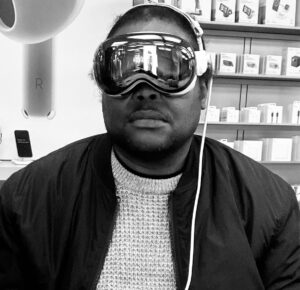The future of work is changing right before our eyes, and artificial intelligence (AI) is at the heart of this transformation. With the workplace evolving at an unprecedented pace, the skills employees need to stand out are also changing.
Mere technical knowledge is no longer enough, with each iteration from AI tools like Cursor AI and Replit, non-technical individuals will soon be able to build a software product without the need for programming.
The ability to handle complexity, think critically, communicate ideas clearly, and tackle challenges with logical reasoning are key competencies in the AI economy.
Let’s explore these essential skills and how you can hone them.
-
LOGICAL REASONING
Logical reasoning capabilities involve analysing problems methodically to find solutions, the ability to perform root cause analysis, and troubleshooting issues effectively.
Whether you’re solving technical, social, or business-related problems, logical reasoning is critical. If a marketing campaign isn’t performing as expected, logical reasoning helps you break down the situation: Who is the target audience? What messaging was used? Are the delivery channels the right platform to reach the intended audience? The ability to critique and break down scenarios is a must-have for tackling complex challenges.
Engaging in activities that stretch your mental capacity helps to grow this skill, Some of these activities are reading, playing chess and logic puzzles. Taking time off from endless social media scrolling allows you to focus on more thoughtful, structured tasks.
You can also intentionally read resources such as reference materials, internal documentation, and generative AI tools to refine your problem-solving approach. If you don’t think critically, you won’t be able to maximise the benefits of the AI Economy.
2. COMMUNICATION
The ability to communicate clearly—whether through writing, speaking, or both is essential for collaborating with others and for creating powerful prompts when interacting with generative AI. Clear instructions and precise prompts yield effective results as AI understand your needs better.
Strong communication skills also enable you to explain technical concepts to non-technical stakeholders. Imagine presenting a data analysis report to your team—if you can convey the findings in simple terms, everyone will understand the insights, leading to better decision-making. This is why companies prioritise roles such as product managers, data and business analysts.
To improve in this area, practice simplifying complex ideas in ways that anyone can understand. Seek feedback on your communication style and make adjustments as needed. Experiment with prompt engineering to refine your interactions with Generative AI, and consider using storytelling techniques to make technical information more accessible to diverse audiences. Storytelling is tying the information to everyday relatable scenarios.
3. CRITICAL THINKING
Critical thinking looks at problems from multiple perspectives, enables you to question assumptions, and considers broader contexts. While logical reasoning is structured and focuses on reaching a conclusive point, critical thinking is broader and often challenges initial assumptions to find innovative solutions. For example, a data analyst must interpret trends within a dataset; critical thinking enables them to ask questions like, “What external factors could influence these numbers?” This broader view can lead to unexpected insights and drive more informed decisions.
To cultivate critical thinking, the first thing to note is bias is the enemy. Ask more “why” and “how” questions when analysing a situation. Challenge even your own biases and explore different points of view. Learn to think through scenarios and various outcomes to prepare for different possibilities.
Finally, being open-minded is a core ingredient of critical thinking, helping you develop a deeper understanding not only of problems but different cultures and practices.
4. ADAPTABILITY
The ability to quickly learn, adjust, and maintain curiosity fuels innovation. Being adaptable doesn’t just mean learning new technical skills; it also means being open to changes in processes, strategies, and thinking patterns. For instance, if a company adopts a new AI tool for project management, an adaptable employee would embrace the change, learn the new system, and help colleagues transition rather than resist the change.
To develop adaptability as a skill, learn to embrace change by seeking new challenges and opportunities. Keep pace with trends and think through how to be part of the changes in your community or industry.
Adaptability used to be only about survival, these days, it is about agility, sustainability and resilience. You must have the ability to thrive through shocks and setbacks, such as the emergence of a new competitor or a job loss.
Innovation is a disruptor that bulldozes the existing order of things. You have to learn to lead or leverage the innovation, or you risk becoming a casualty of change.
5. ETHICS AND MORAL AWARENESS
Ethics and moral awareness are crucial for recognising and addressing unethical practices in both AI systems and organisational behaviour. Ethical awareness allows you to consider the potential impacts of AI on people’s lives, ensuring that technology aligns with broader values and does not harm users or society. For example, understanding the implications of biased algorithms can help you advocate for fairness in AI applications, ensuring that decisions are made equitably.
Familiarise yourself with ethical standards in AI, such as fairness, transparency, and privacy. Learn about concepts like the AI black box and study regulatory documents like the EU AI Act to understand why governing AI is important.
Ultimately, you should have a moral compass that will guide you to make responsible decisions and speak up against unethical practices in your community and workplace.
Artificial Intelligence is not going anywhere anytime soon, it is just getting started and will be the key driver of our socioeconomic system across businesses and nations. To paraphrase Charles Darwin, “It is not the most intelligent that survive but those who adapt to change”.






